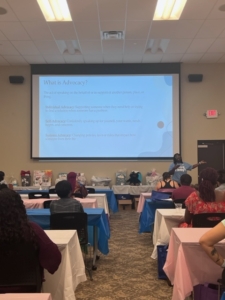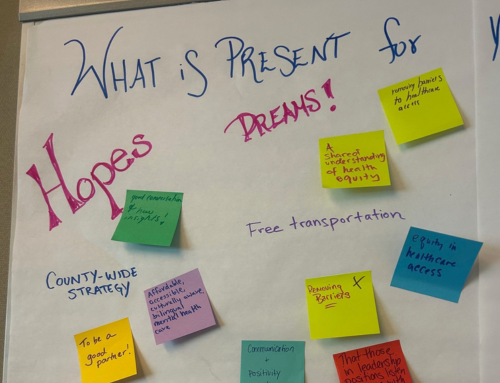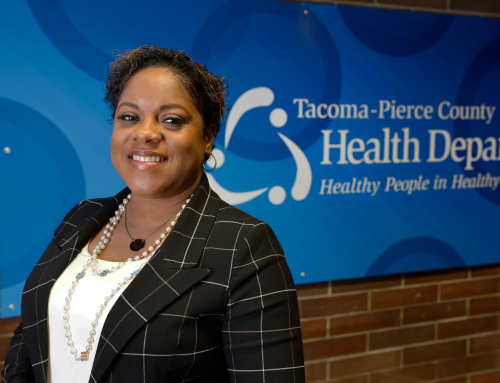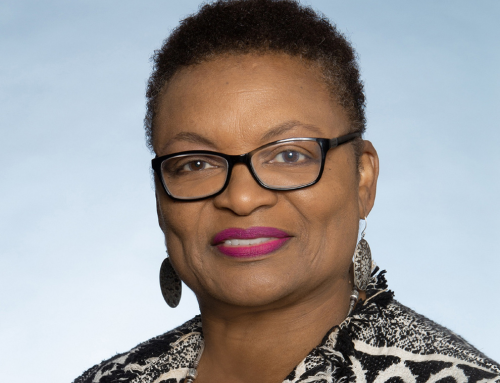 The Butler County General Health District (BCGHD) has elevated equity as a priority in their health department operations and practices. The Racial Equity Team (RET), created initially through a grant focused on maternal and child health, began on a mission to assess and enhance equity throughout the health department. Over a year and a half, the team’s efforts have not only reshaped the internal landscape of the health department, but also left an impact on community engagement and partnerships.
The Butler County General Health District (BCGHD) has elevated equity as a priority in their health department operations and practices. The Racial Equity Team (RET), created initially through a grant focused on maternal and child health, began on a mission to assess and enhance equity throughout the health department. Over a year and a half, the team’s efforts have not only reshaped the internal landscape of the health department, but also left an impact on community engagement and partnerships.
Erik Balster, MPH, BCGHD Health Commissioner and Dominique Johnson, former Health Equity Coordinator and current Accreditation Coordinator, highlighted the team’s core mission and emphasized the inherent nature of embedding equity in local public health initiatives.
“[RET] really was created to start assessing what equity looked like internally for us…and then to be a great partner externally,” Johnson said.
The RET initiated a series of bi-monthly meetings to understand each team member’s perspective on equity, regardless of their role within the health department. Balster emphasized that showcasing the impact of health equity efforts on all departments, even those less obviously linked to equity like plumbing and the environmental health department, became a priority.
“…that guiding principle of making sure that everybody at the health department knew how their role was attached to equity and those fundamental services became really important,” Johnson said
A milestone for the RET was the completion of an equity assessment, both in 2022 and recently in 2023. The comprehensive assessment involved all staff and assessed their understanding of equity and its connection to their day-to-day work. Partnering with their local YWCA, the data gathered from the assessment informed the creation of BCGHD’s Equity Action Plan, addressing areas like communication, policy review, and new onboarding processes.
Equity has always been a part of the fabric of BCGHD’s initiatives.
“…equity is not just a one-time thing; it’s a refocused way of how we operate and handle situations internally and externally,” Balster said.
Johnson reflected on her time as the health equity coordinator and how valuable sharing an office space with the former Accreditation Coordinator was in understanding how all the pieces of the health department fit together. Now as the accreditation coordinator, Johnson has a new appreciation for ensuring the health department is keeping up with national standards.
“…now that I’ve moved into the Accreditation Coordinator position, I see the layout of where we need to be, and I do think that it’s helpful,” Johnson said.
Accreditation provided an accountability mechanism for the department’s journey toward equity. The accreditation process not only set benchmarks but also facilitated communication and opportunities for staff development. Johnson recognized how accreditation served as an invisible guide, shaping the layout of their equity goals and offering a framework for continuous assessment and improvement.
“…there is some accountability for us meeting those marks and making sure that we’re doing the things that we said, and that we’re continuing to assess and evaluate where we’re at versus where we need to be,” Johnson emphasized.
The RET also reshaped the department’s workforce development efforts and onboarding processes. The RET included representation of every team within the department and provided an avenue to have open discussion about gaps and areas of improvement for onboarding. The Heath Equity Coordinator also had dedicated time during the onboarding process to engage with new employees and discuss the department’s equity efforts and priorities. This approach significantly changed the onboarding experience, aligning it with the department’s equity and organizational objectives and providing a foundation for a more inclusive and informed workforce.
“As we are bringing in newer and younger staff, [RET] and our equity efforts became part of our onboarding process and even helped establish an onboarding process,” Balster said.
 Both Balster and Johnson emphasized the importance of patience and leadership buy-in in navigating the complexities of equity work. Ensuring that leadership has a strong understanding of the goals and how they can support equity efforts is crucial to moving equity work forward.
Both Balster and Johnson emphasized the importance of patience and leadership buy-in in navigating the complexities of equity work. Ensuring that leadership has a strong understanding of the goals and how they can support equity efforts is crucial to moving equity work forward.
“The work is much like accreditation; it’s about continuous quality improvement as opposed to a one-off training,” Balster noted.





